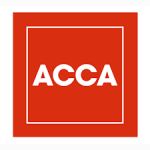Want to learn all about chartered accountants? This is the guide for you.
In today’s guide, you’ll learn all about chartered accountants and the difference between them and accountants.
Topics on this page include:
- What is a chartered accountant?
- What do chartered accountants do?
- The difference between accountants and chartered accountants?
- Do you need a chartered accountant?
And much more… Let’s get into it:
What is a Chartered Accountant?
A chartered accountant is an accountant that has been professionally accredited with a “chartered status”.
To achieve this status, an accountant must undertake a minimum of three years of training and pass examinations in financial management, auditing, and taxation.
Chartered accountants are usually members of regulatory professional bodies, such as:
- The CIMA (Chartered Institute of Management Accountants).
- The ICAEW (Institute of Chartered Accountants in England and Wales).
- The ACCA (Association of Chartered Certified Accountants).
- The Chartered Insurance Institute.
As members of these bodies, they are bound to additional codes of ethics and often must hold a practising certificate and insurance.
You can find many chartered accountants that work solo. But many are part of a wider group known as a chartered accountancy firm like the SMH Group.
In fact, around 30% of ICAEW chartered accountants work in a firm like this.
What Do Chartered Accountants Do?
Chartered accountants provide advice and financial expertise to help businesses and individuals manage a range of financial matters.
The SMH Group is an example of a chartered accountancy firm, and we offer a range of services.
These include:
- Business start-ups – Chartered accountants can advise on the best way to form a business and the best business structure for your needs.
- Bookkeeping – They can help review and improve existing accounting systems and design and implement a new system to monitor your financial performance.
- Capital Allowances – Chartered accountants can help advise on capital allowances which allow businesses to write off expenses of certain assets against taxable income.
- Cloud accounting – They can help keep costs down by helping you invest in online accounting software known as cloud accounting.
- Financial Planning – Chartered accountants can help you plan for the future, looking at estate protection, income advice, and creating income for retirement.
- Forensic Accounting – They can help advise and provide aid during financial legal disputes.
- Payroll and employee services – A chartered accountant can assist with setting up payroll and auto-enrollment or allowing you to outsource it to keep costs low.
- Taxation – They can help you understand the over 17,000 pages of tax statutes in the UK and provide advice with Capital Gains Tax, Corporation Tax, Income Tax, and more.
- VAT returns – Chartered accountants can advise on the advantages of VAT registration, prepare and submit VAT returns, and liaise with HMRC during complex VAT issues.
If you’re looking for personal or commercial financial advice, be sure to consider a chartered accountant like SMH Group today.
Difference Between Accountant and Chartered Accountant
By law, anyone can call themselves an accountant. There are no specific qualifications required.
An accountant may have studied accountancy at a beginner level, such as through the Association of Accounting Technicians (AAT), but they don’t need to pass any exams to be called an accountant.
However, those calling themselves accountants must still follow the same laws as chartered accountants, such as those laid out in the Financial Reporting Council’s Corporate Governance and Stewardship Codes.
Meanwhile, chartered accountants must pass several exams AND complete up to five years of work experience to fully qualify.
After qualification, chartered accountants can also sign up to become a member of a professional body and be subject to their ethics code.
Chartered Accountants are subject to the ICAEW Code of Ethics. Chartered Accountants are expected to demonstrate the highest standards of professional conduct and to take into consideration the public interest.
What’s an ACA Qualification?
You may see some chartered accountants with the title ACA at the end of their name. But what does that mean?
The ACA qualification is an internationally recognised financial business qualification offered by the ICAEW. This qualification requires students to complete three years of on-the-job training alongside passing several exams.
Do You Need a Chartered Accountant?
As chartered accountants are more qualified than a normal accountant and are usually subjected to greater professional ethics codes, they are best suited to handling complex financial matters.
If you want to start your own business, organise payroll, handle complex tax issues, or make a financial plan before acquiring a business, chartered accountants are a perfect choice.
Some chartered accountants are more specialised in certain financial matters, so be sure to investigate their specialities for the best results.
At SMH Group, we have several chartered accountants that specialise in specific areas, like VAT returns or business start-ups.
How Much Does a Chartered Accountant Cost?
The cost you can expect to pay for a chartered accountant will usually depend on their experience and the complexity of the financial matter.
Other factors can include your annual turnover and the number of employees you have.
Be sure to contact us today to learn more about the costs you can expect.




Comments are closed.